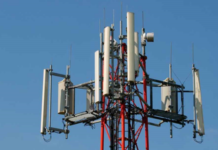Electronic Transmission Of Votes Banned In New Electoral Act
TECH DIGEST – INEC testing the state of readiness and the integrity of the new technology. In addition to the in-house tests, members of the INEC Press Corps participated in a mock registration exercise at INEC Media Centre.
As Senate prepares to pass the Electoral Act amendment bill on Tuesday, the sudden emergence of a strange Section 50(2), which completely outlaws transmission of votes by electronic means, is generating tension among lawmakers.
The provision, which some members of the Kabiru Gaya-led committee described as strange, simply reads: “Voting at an election under this Bill shall be in accordance with the procedures determined by the commission, which may include electronic voting provided that the Commission shall not transmit results of the election by electronic means.”
The Independent National Electoral Commission (INEC) had adopted the electronic transmission of results in some previous elections to the admiration of many stakeholders, particularly in the September 2020 Edo State governorship polls.
Read Also:
It was learnt that some members of the Senate Committee on INEC, which prepared the bill to be passed on Tuesday, are set to raise an objection to it.
The INEC had in the past expressed its determination to adopt electronic voting, including the transmission of results by electronic means.
To that effect, its chairman, Prof Mahmud Yakubu, had urged the National Assembly to amend the Constitution and the Electoral Act to make provision for electronic collation and transmission of election results.
He had argued that the manual collation, which is enshrined in the laws, is too cumbersome and expensive.
Emphasising the importance of technology, Yakubu said: “We have to also address our electoral process, which is manual. It is too expensive and cumbersome. The process of collating results is sometimes chaotic because the law says that you must write results manually and collate them manually right from the polling unit to the ward, from the ward to the local government, then, the state and from the state to the national level, in the case of the presidential election.
“A lot has been achieved in other climes with the simple application of technology. So, the encumbrances to the deployment of technology in the transmission of election results should be removed as part of this process.”




















